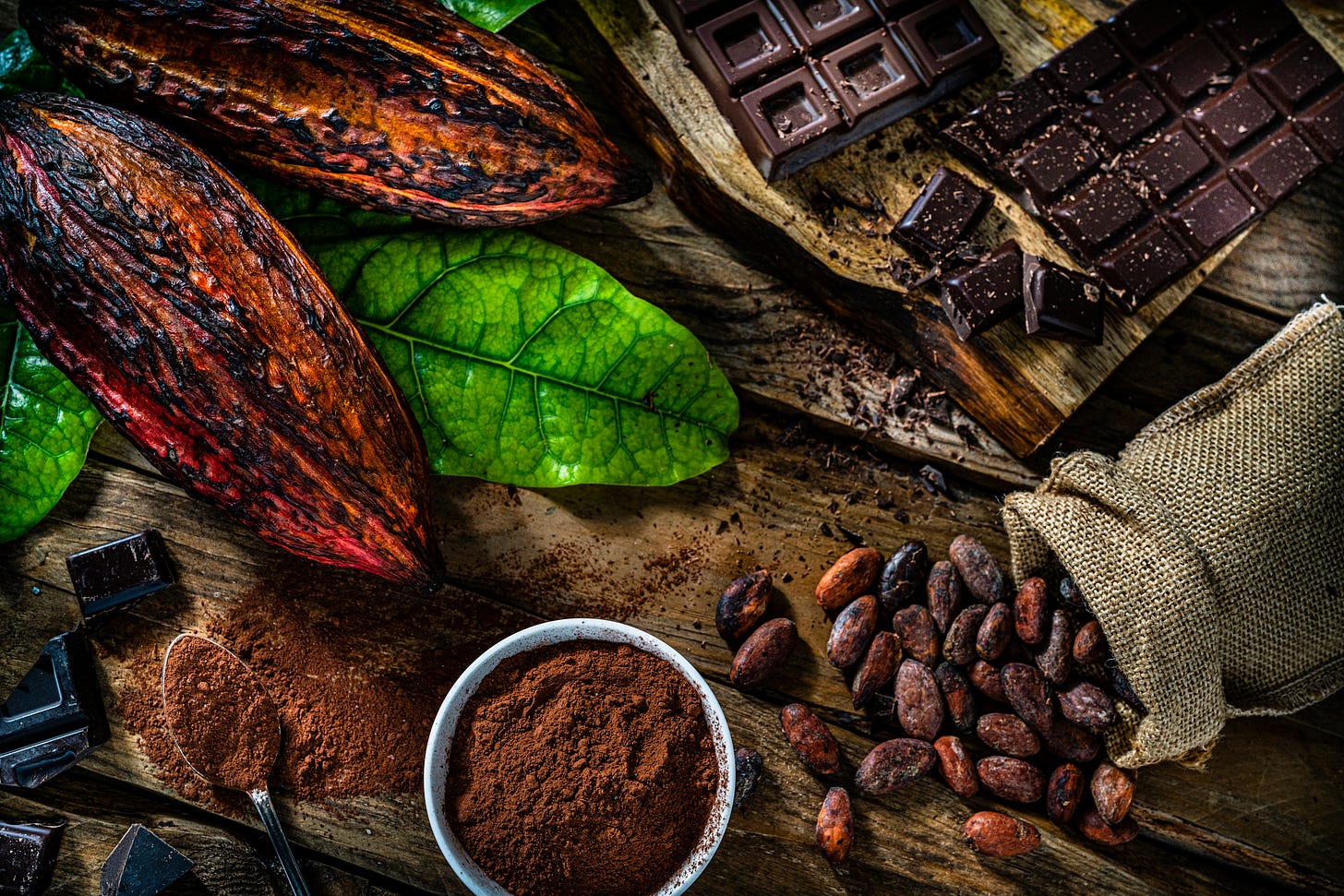Part 3: One Buyer, No Escape, The Cocoa Monopoly and Cocoa Farmers' Welfare in Ghana
In the previous essay, I discussed Ghana’s misaligned priorities in choosing to invest in state cocoa farms over food security, and how that decision sidelines both our dietary needs and our smallholder farmers. Central to that discussion was the plight of the smallholder, the independent cocoa farmer who has long been the backbone of the industry. We saw that despite their importance, these farmers endure low incomes and have little power in the market. Now, in this third part of the series, I want to dig into why that is. As someone who grew up on a cocoa farm, I have witnessed firsthand how the system seems stacked against the farmer. A big reason is the monopoly control the government (via COCOBOD) exerts over the cocoa trade in Ghana. Imagine toiling for a year on your farm and having only one legal buyer for your product, a buyer who sets the price unilaterally. That has been the reality for Ghana’s cocoa farmers for decades. In this essay, I will argue that this monopoly system has kept farmers’ incomes woefully low and their voices muted. By becoming not just a regulator and buyer but also a producer through state farms, the government could further entrench this imbalance of power. What happens when the referee not only can set the score, but is also trying to score goals of its own? The concern is that farmers, already struggling to make ends meet, will find it even harder to negotiate fair outcomes in a market completely dominated by the state.
Under Ghanaian law, cocoa farmers do not have the freedom to sell their beans to whomever they please. In fact, it is a crime to sell cocoa to anyone except licensed buyers who ultimately deliver it to COCOBOD. This law has been in place for ages, originally put in to stop foreign firms from exploiting farmers and to ensure quality control. The result, however, is that Ghana’s cocoa market is a monopsony, essentially a monopoly but for buyers (one buyer, many sellers). COCOBOD, through its agents, is the sole official buyer of cocoa beans from farmers. Each year, COCOBOD sets a fixed producer price, the price per bag or tonne that will be paid to farmers, and all licensed buying companies (LBCs) must pay that same price. Farmers cannot haggle or seek a better deal elsewhere; there isn’t an “elsewhere” to go to. My father, for example, sells to the village LBC agent at the price announced in the season. There’s no negotiation, he either takes it or, well, that’s it. Smuggling to Ivory Coast for a higher price is an option some consider in years when Ivory Coast’s price is better, but it’s risky and illegal. For the vast majority, COCOBOD is the only game in town.
While having a stable, guaranteed buyer has some advantages, for instance, farmers know someone will buy their crop, and historically, the government tried to ensure a minimum price to avoid extreme lows, the downside has been a suppression of prices at the farmgate. Farmers have long complained that the price they receive does not reflect the true value of cocoa on the world market. And they are right to complain. Take the recent example from the 2024/2025 season: COCOBOD set the price at GH¢48,000 per tonne (about $4,000 at the time), which was only a very small rise from the previous rate. But by late 2024, world cocoa prices had surged, reaching the equivalent of over $12,000 per tonne on international markets. Now, the farmers weren’t expecting $12,000; that world price is what Ghana gets for the processed or traded commodity, and there are costs along the chain, but the disparity was huge. Even accounting for all costs, farmers felt they deserved a larger share of the windfall. Instead, COCOBOD, facing its own financial issues, kept the increment minimal. This pattern is not new: when world prices climb, Ghana’s farmers often see only a fraction of the benefit, because the government either sells forward at earlier prices or holds more revenue to itself to cover its budget and expenses. Conversely, when world prices fall, the government sometimes holds the farmer price stable (which farmers appreciate) but then covers the shortfall by borrowing or cutting other support programs. In short, farmers seldom receive full market value; they receive a managed price that suits the state’s agenda, not the farmer’s welfare.
The impact of this on farmer livelihoods has been devastating. Several studies and reports highlight how impoverished cocoa farmers in Ghana are, despite producing a “wealthy” crop. According to Oxfam, up to 90% of Ghanaian cocoa farmers do not earn a living income, meaning they cannot afford a decent standard of living (enough food, housing, schooling, medical care) from their cocoa earnings. Many survive on less than $2 a day, which is around the extreme poverty line. This aligns with what I see in my own community: cocoa farmers who work incredibly hard but remain among the poorest in our society. It’s a bitter paradox: Ghana’s cocoa is world-renowned and brings in foreign exchange, yet the people growing it are trapped in poverty. A key reason, as experts like Nana Kwasi Barning Ackah of the Ghana Civil-Society Cocoa Platform point out, is this controlled pricing system. Farmers bear all the costs and risks, buying seedlings, fertiliser, labour, suffering pest attacks or drought, but have no power to negotiate the sale price of their product. In any other business, one could shop around for a better offer or hold out for more when supply is tight. But for cocoa farmers under COCOBOD, the freedom isn’t there. They essentially work for whatever wage the state decides.
Keep reading with a 7-day free trial
Subscribe to Cocoa Diaries Newsletter to keep reading this post and get 7 days of free access to the full post archives.


